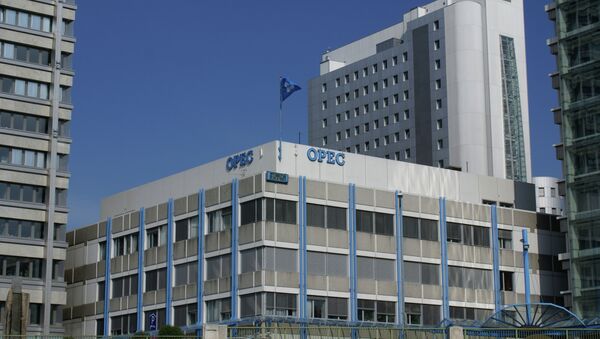Energy ministers of the once powerful oil cartel are set to meet in Vienna on June 2, less than two months after a failure of the April meeting with non-OPEC countries in Doha that sought to freeze oil output at January levels in a bid to shore up prices.
"Divisions and political infighting inside OPEC, specifically among Iran, Saudi Arabia and other Arab nations have paralyzed the organization to the point where it cannot reach a collective decision and act as one," Wang Haibing, a strategy analyst at the China Energy Fund, said.
"The status of OPEC as the regulator of oil prices…has significantly weakened," Xu Qinghua, an energy studies director at the Renmin University of China, told Sputnik.
Xu said she expected the cartel to try and secure its market share, although this could be torpedoed by members like Iran, who has been increasing its oil output after returning to the market earlier this year.
"OPEC estimates that oil prices will never return to the levels before November 2014, regardless of whether OPEC will cut down production or not," Xu said, adding "traditional hydrocarbons will not keep their dominant position" on the market.
Yang Lei, associate professor at Nankai University, predicted that OPEC’s relations with non-member states would be brought up at the conference next week.
"Other [non-OPEC] countries have been boosting their production in the past years amid increased extraction of shale oil and gas… This dealt a huge blow to the global market," Yang told Sputnik.
Xu said Russia and China have a lot of influence on the supply and demand in the global energy market. Russia is world’s largest non-OPEC energy producer, while China shows the fastest energy consumption growth. They are both interested in stabilizing the oil market to prevent price volatility.






